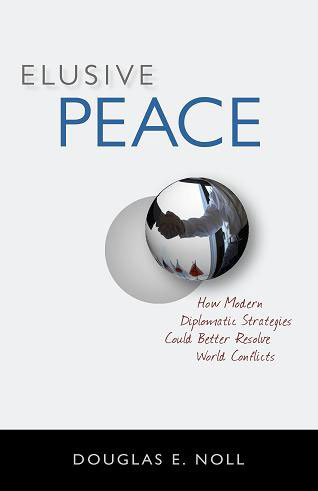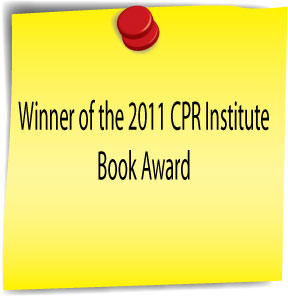Douglas Noll, author of the award winning book Elusive Peace draws the correlation between the high number of couples who regret their divorces and a lack of peacemaking skills. The most common reason cited for divorce is irreconcilable differences-which Noll describes as a failure to understand conflict resolution skills. “Couples get to the point where they have differences they cannot reconcile. The lack of skill to solve problems is a major contributor in unresolved conflicts,” Noll says.
Comedian and actor Russell Brand recently admitted that he regrets filing for divorce from his ex-wife pop artist Katie Perry, and wishes that he had tried harder to save his marriage. (www.masslive.com/entertainment/index.ssf/2012/05/report_russell_brand_regrets_d.html)
Brand’s sentiments all too often mirror a good majority of divorced couples. Noll points to statistic that show: “40% of divorced people regretted their divorce and thought it was preventable.” (Australian and New Jersey studies. (William J. Doherty, PhD, Family Social Science Dept., University of Minnesota, Bdoherty(at)che2(dot)che(dot)umm(dot)edu).
“Couples in high conflict relationships who divorce are most often at a point in their relationship where they cannot negotiate successful resolutions to conflict. Locked in win/lose belief systems, relationships often suffer irreparable damage,” Noll points out.
Flooded with emotion, high conflict couples reach that pinnacle of distress where separating seems the safest option,” Noll explains. “Most people are unskilled in resolving conflict successfully. To negotiate peace in a high conflict situation where both parties are satisfied with the outcome is an area the average person is not schooled in. Unfortunately most couples learn how to argue and solve problems from their parents, and generational patterns show up in today’s relationships,” Noll explains, adding that “this failure to solve problems amicably and with skill regrettably sets up a poor example to children. Bullying and fighting becomes the norm.”
“As a peacemaker and professional mediator the dispute resolution skills we teach not only benefit diplomats, corporations and communities. Couples who learn to embrace peacemaking skills learn emotional intimacy and pass this valuable tool to their children,” Noll explains. Noll believes that peacemaking starts at home so that collaboration is the norm for solving problems and kids at home learn critical relationship building tools. “If we teach children at a young age healthy boundaries, good listening skills, and empathetic responses in communication, we will be raising a generation of adults who will make better decisions in issues involving our global community,” Noll says.
“However, when any relationship reaches a critical point, a skilled mediator is key for getting both parties to work together again,” Noll points out.
Read more: http://www.sfgate.com/cgi-bin/article.cgi?f=/g/a/2012/05/15/prweb9501430.DTL#ixzz1v2nP8iHp


